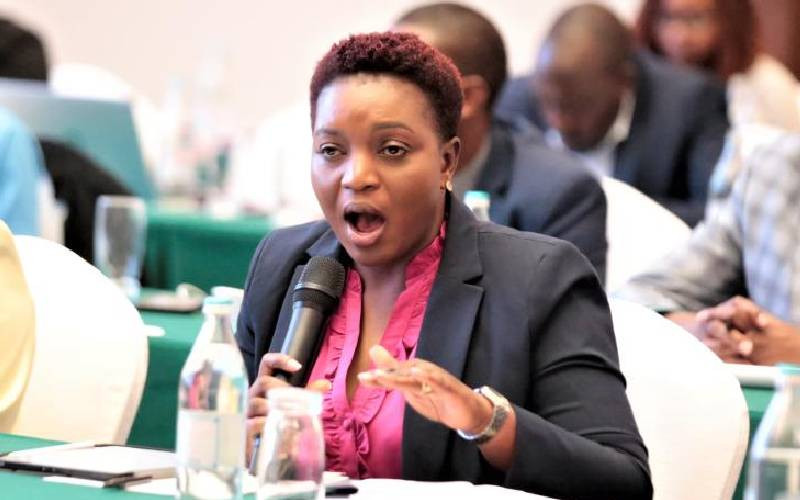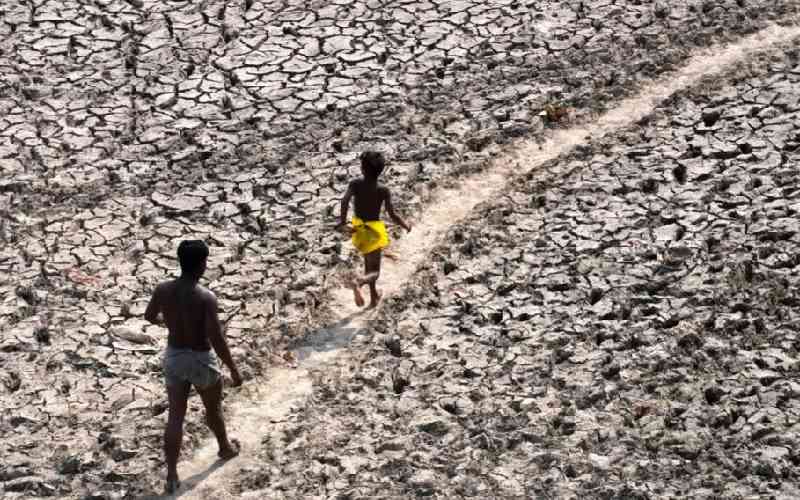“My name is Joseph. I have been attacked by my wife. A friend forwarded me a number, 1195, to call and ask for help.”
“Hello, Health Care Assistance Kenya (HAK), how may I help you,” comes a voice from the other end.
“My name is Joseph Maina, and I need help: My wife poured hot cooking oil on me,” I say in a squeaky voice.
“Sir, tell me your location so that we can send an ambulance for you,” answers a polite lady at the call centre.
For a moment I do not know what to say. I had made the call with doubt at the back of my mind. Journalists normally start from a point of unbelief, poke holes and finally establish facts.
So when my call was picked while I expected it to ring forever, I was momentarily taken aback. “Hello?” The voice again. I collected myself and explained who I was and my mission.
As I head to the call centre on State House Road in Nairobi for the interview, I keep thinking of the many victims of domestic violence that would have been saved had the 24-hour toll-free hotline been in existence. One of them sticks out in my mind like a sore thumb.
Janet Mwihaki was the beauty of her village; her name played on the the lips of hopeful suitors. Later she would meet, fall in love and marry John Mwangi in 1999.
She bore three sons between 2000 and 2005. She, like many women, thought her marriage would last despite the ups and downs which she considered ‘normal’ in marriage. He hit, abused and disparaged her accusing her of “sleeping around with other men”.
When she had had enough of the daily kicks and blows, Janet decided to call it quits. But her parents refused to take her back and citing the children and related factors as the reason. So she stuck with her abusive husband.
Things got worse when John stabbed her four times in the back and once in the abdomen in June, 2005. She survived without any debilitating injuries. The best the police could do at the time was to ask her to report him.
Unknown to her, life as she knew it, would change a month later when her husband accosted her again as she made her way to Gikomba market.
“He said, ‘I have asked that you return home but you haven’t. Today I will kill you!’” she narrated on KTN’s Survivor series, which aired last year.
As it turned out, John was just an insecure man, something that he says provoked him to beat and abuse his wife. Burning with jealousy, he set out on a mission to rid her of the “beauty that attracted other men to her”, he would confess on camera.
“He got a firm hold of me. I begged and cried, asking him not to kill me because the children depended on me,” says Janet of the fateful day.
Her plight landed on deaf ears. Her estranged husband doused her face with petrol and lit her up on the streets as everyone watched.
Stay informed. Subscribe to our newsletter
He left on foot, leaving Janet a screaming fireball. As a result, she has permanent scars on her face and hands. Her hands stiffened with lack of muscle movement and she lost the sense of touch.
Though her husband was apprehended and jailed for ten years, she wishes the abuse had stopped at some point; before the petrol incident.
Janet is not the first (and may not be the last) to experience the pain of domestic violence. In fact, by the time you finish reading this piece, hundreds of Kenyans will have gone through rape, torture, physical abuse or violence of some kind.The Kenya Demographic Health Survey (2009) reported that 39 per cent of women in Kenya have experienced some form of gender-based violence. Some 21 per cent of of women interviewed for the report said they had been sexually violated.
Do abused individuals get justice?
This question hitherto, would have been treated as a no-brainer. But with several lobby groups and human rights watchdogs working to bring perpetrators to book, there may be a reason for future Janets to hope that justice will be served.
“The President commissioned HAK last year,” says Fanis Lisiagali, the project director.
“We receive reports and complaints from the public on sexual and gender-based violence meted out primarily on women and children and act upon the information. We also offer our services to men.”
MORE TREACHEROUS
They start with the urgent facets of a case. Like say if you were burnt, they would send an ambulance to take you to hospital where you will receive treatment.
From there, they will inform the police with whom the victim will record a statement.
“Our counsellors will come right in and start the process of debriefing. The call centre is manned by trained counsellors and psychologists who understand trauma,” explains Fanis.
Counselling, she adds, is extensive. Even people who are closely linked to the victims are counselled.
The aim is to get victims to resume their normal lives as well as to lessen their mental trauma. HAK’s aim is to maintain the building blocks of a good society - happy family units.
If a case involves a couple, HAK assesses the possibility of reuniting the family unit if satisfied that peace will prevail, after counselling both the perpetrator and the survivor.
HAK’s efforts have not been in vain. This year, the director was recognised by the UN as the Kenyan United Nations Person of the Year 2014, coming second after First Lady Margaret Kenyatta, who was recognised for her Beyond Zero campaign.
HAK’s modus operandi involves all stakeholders who together, form a united network with the unanimous aim to fight sexual and gender-based violence.
“Helping victims and providing for their various needs cannot be done by HAK alone,” she says. “We have to work with others – and we do – to find the right help and at the right time.”
Nairobi Women’s Hospital, Fanis says, is HAK’s hospital of choice though the organisation handles cases regardless of which hospital is involved.
In some instances, victims may need legal services at which time HAK refers them to the Federation of Women Lawyers (FIDA) or finds a professional who can offer pro bono services. The call centre, located along State House Road, has handled 8,115 cases since January 2013. Additionally, 17,823 individuals called in within the same span of time just to ask about the services.
Of the cases, 412 were defiled girls, 284 were raped and 118 went through female circumcision. The rest involved other types of violence such as sodomy, physical assault and battery.
Fanis opines that Kenyans are ignorant of domestic violence.
“We don’t provide enough protection for our loved ones; we live like it is normal and nothing wrong is going on. We watch them being destroyed,” she laments.
Fanis hopes someone will pick up the phone and call before it is too late, lest a family loses a daughter, sister, aunt, mother or niece.
On the evening of the interview, Fanis told The Standard that 17 cases had been reported since that morning. They included two rape cases, three defilement cases and a host of others on torture and harassment.
“Would you call if you saw something?” Fanis asks. Yes, would you?
 The Standard Group Plc is a
multi-media organization with investments in media platforms spanning newspaper
print operations, television, radio broadcasting, digital and online services. The
Standard Group is recognized as a leading multi-media house in Kenya with a key
influence in matters of national and international interest.
The Standard Group Plc is a
multi-media organization with investments in media platforms spanning newspaper
print operations, television, radio broadcasting, digital and online services. The
Standard Group is recognized as a leading multi-media house in Kenya with a key
influence in matters of national and international interest.
 The Standard Group Plc is a
multi-media organization with investments in media platforms spanning newspaper
print operations, television, radio broadcasting, digital and online services. The
Standard Group is recognized as a leading multi-media house in Kenya with a key
influence in matters of national and international interest.
The Standard Group Plc is a
multi-media organization with investments in media platforms spanning newspaper
print operations, television, radio broadcasting, digital and online services. The
Standard Group is recognized as a leading multi-media house in Kenya with a key
influence in matters of national and international interest.









